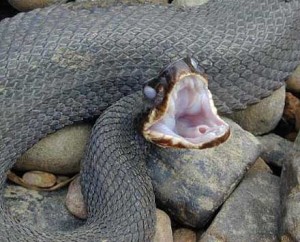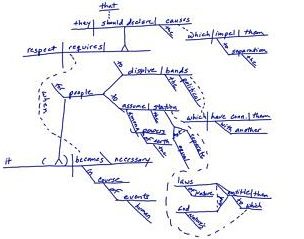 If you’ve never read Theodore Roethke, you have a treat in store. He has written some of the lushest poems about gardens, dirt, and decay that you’d ever want to read, a lovely villanelle and many profound, longer poems. Today I’m posting the last two sections from “Mediations of an Old Woman,” one of the long poems. But “My Papa’s Waltz,” “The Waking” (villanelle), “Root Cellar, and “Big Wind”are among my favorites.
If you’ve never read Theodore Roethke, you have a treat in store. He has written some of the lushest poems about gardens, dirt, and decay that you’d ever want to read, a lovely villanelle and many profound, longer poems. Today I’m posting the last two sections from “Mediations of an Old Woman,” one of the long poems. But “My Papa’s Waltz,” “The Waking” (villanelle), “Root Cellar, and “Big Wind”are among my favorites.
from Mediations of an Old Woman
3
As when silt drifts and sifts down through muddy pond-water,
Settling in small beads around weed and sunken branches,
And one crab, tentative, hunches himself before moving along the bottom,
Grotesque, awkward, his extended eyes looking at nothing in particular,
Only a few bubbles loosening from the ill-matched tentacles,
The tail and smaller legs slipping and sliding slowly backward—
So the spirit tries for another life,
Another way and place in which to continue;
Or a salmon tired, moving up a shallow stream,
Nudges into a back-eddy, a sandy inlet,
Bumping against sticks and bottom-stones, then swinging
Around, back into the tiny maincurrent, the rush of brownish-white water,
So, I suppose, the spirit journeys.
4
I have gone into the waste lonely places
Behind the eye; the lost acres at the edge of smoky cities.
What’s beyond never crumbles like an embankment,
Explodes like a rose, or thrusts wings over the Caribbean.
There are no pursuing forms, faces on walls:
Only the motes of dust in the immaculate hallways,
The darkness of falling hair, the warning from lint and spiders,
The vines graying to a fine powder.
There is no riven tree, or lamb dropped by an eagle.
There are still times, morning and evening:
The cerulean, high in the elm,
Thin and insistent as a cicada,
And the far phoebe, singing,
The long plaintive notes floating down,
Drifting through leaves, oak and maple,
Or the whippoorwill, along the smoky ridges,
A single bird calling and calling:
A fume reminds me, drifting across wet gravel;
A cold wind comes over stones;
A flame, intense, visible,
Plays over the dry pods,
Runs fitfully along the stubble,
Moves over the field,
Without burning.
xxxxIn such times, lacking a god,
xxxxI am still happy.
Theodore Roethke
 Heaved From the Earth
Heaved From the Earth




